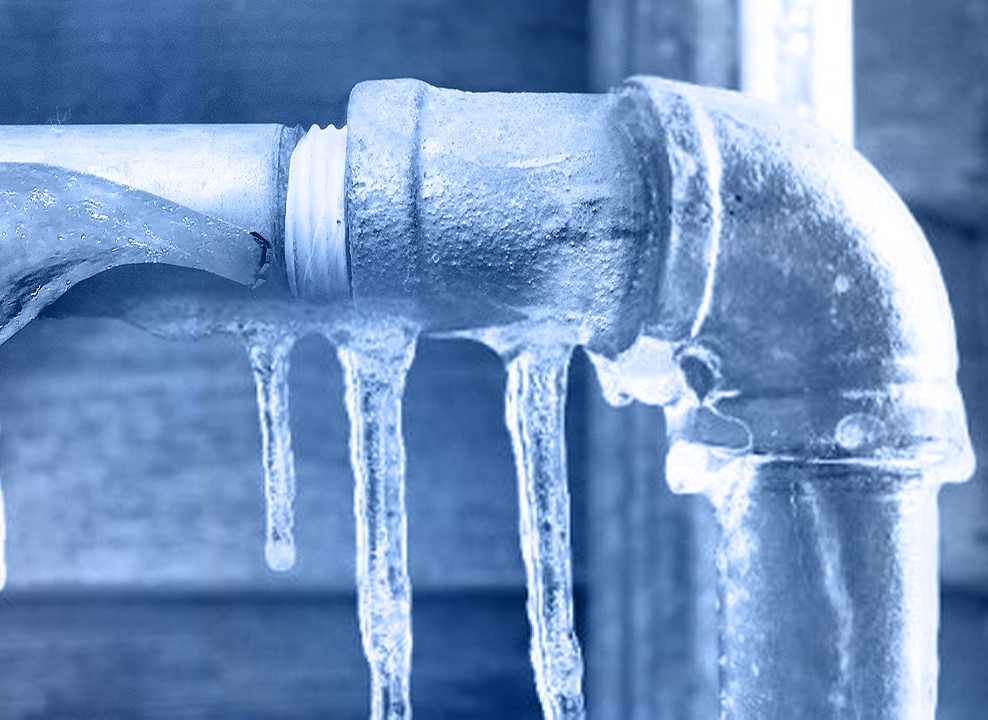How to Prevent Frozen Pipes in Cold Weather: Expert Advice
How to Prevent Frozen Pipes in Cold Weather: Expert Advice
Blog Article
We have noticed the article on Winter Plumbing Precautions: Preventing Frozen Pipes below on the internet and concluded it made good sense to share it with you on this page.

Cold weather can damage your plumbing, especially by freezing pipes. Right here's exactly how to stop it from occurring and what to do if it does.
Intro
As temperatures decrease, the threat of frozen pipes rises, potentially resulting in pricey repairs and water damage. Recognizing exactly how to avoid frozen pipelines is critical for homeowners in chilly environments.
Avoidance Tips
Protecting susceptible pipelines
Cover pipes in insulation sleeves or use heat tape to secure them from freezing temperature levels. Focus on pipelines in unheated or external areas of the home.
Heating strategies
Maintain interior rooms properly heated up, particularly areas with plumbing. Open up cupboard doors to enable cozy air to flow around pipelines under sinks.
Just how to determine icy pipes
Search for reduced water flow from taps, unusual smells or noises from pipelines, and noticeable frost on subjected pipelines.
Long-Term Solutions
Structural changes
Think about rerouting pipelines far from outside walls or unheated areas. Include extra insulation to attic rooms, basements, and crawl spaces.
Upgrading insulation
Buy top notch insulation for pipelines, attics, and wall surfaces. Proper insulation aids preserve constant temperature levels and reduces the danger of icy pipelines.
Shielding Outside Plumbing
Garden tubes and exterior taps
Separate and drain pipes garden pipes before winter. Set up frost-proof spigots or cover outside faucets with shielded caps.
Understanding Frozen Pipes
What triggers pipes to ice up?
Pipes freeze when revealed to temperatures below 32 ° F (0 ° C) for prolonged periods. As water inside the pipes freezes, it expands, putting pressure on the pipe walls and potentially causing them to burst.
Risks and damages
Icy pipes can lead to water system interruptions, property damage, and expensive repairs. Ruptured pipes can flooding homes and trigger comprehensive structural damage.
Indicators of Frozen Pipes
Identifying frozen pipes early can stop them from rupturing.
What to Do If Your Pipes Freeze
Immediate activities to take
If you believe frozen pipes, maintain faucets open up to relieve stress as the ice melts. Make use of a hairdryer or towels taken in warm water to thaw pipelines gradually.
Final thought
Stopping frozen pipelines calls for aggressive steps and quick actions. By understanding the reasons, signs, and safety nets, house owners can protect their pipes during winter.
Helpful Tips to Prevent Frozen Pipes this Winter
UNDERSTANDING THE BASICS: WHY PIPES FREEZE AND WHY IT’S A PROBLEM
Water freezing inside pipes is common during the winter months, but understanding why pipes freeze, and the potential problems it can cause is crucial in preventing such incidents. This section will delve into the basics of why pipes freeze and the associated problems that may arise.
THE SCIENCE BEHIND FROZEN PIPES
When water reaches freezing temperatures, it undergoes a physical transformation and solidifies into ice. This expansion of water as it freezes is the primary reason pipes can burst. As the water inside the pipe freezes, it expands, creating immense pressure on the walls. If the pressure becomes too great, the pipe can crack or rupture, leading to leaks and water damage.
FACTORS THAT CONTRIBUTE TO PIPE FREEZING
Low Temperatures: Extremely cold weather, especially below freezing, increases the risk of pipes freezing. Uninsulated or Poorly Insulated Pipes: Pipes located in unheated areas, such as basements, crawl spaces, or attics, are more prone to freezing. Insufficient insulation or lack of insulation altogether exacerbates the problem. Exterior Wall Exposure: Pipes running along exterior walls are susceptible to freezing as they encounter colder temperatures outside. Lack of Heating or Temperature Regulation: Inadequate heating or inconsistent temperature control in your home can contribute to frozen pipes. PROBLEMS CAUSED BY FROZEN PIPES
- Pipe Bursting: As mentioned earlier, the expansion of water as it freezes can cause pipes to burst, resulting in significant water damage.
- Water Damage: When pipes burst, it can lead to flooding and water damage to your property, including walls, ceilings, flooring, and personal belongings.
- Structural Damage: Prolonged exposure to water from burst pipes can compromise the structural integrity of your home, leading to costly repairs.
- Mold and Mildew Growth: Excess moisture from water damage can create a favorable environment for mold and mildew growth, posing health risks to occupants.
- Disrupted Water Supply: Frozen pipes can also result in a complete or partial loss of water supply until the issue is resolved.
WHY CERTAIN PIPES ARE MORE PRONE TO FREEZING
- Location: Pipes located in unheated or poorly insulated areas, such as basements, crawl spaces, attics, or exterior walls, are at higher risk of freezing.
- Exterior Pipes: Outdoor pipes, such as those used for irrigation or exposed plumbing, are particularly vulnerable to freezing as they are directly exposed to the elements.
- Supply Lines: Pipes that carry water from the main water supply into your home, including the main water line, are critical to protect as freezing in these lines can affect your entire plumbing system.
- Underground Pipes: Pipes buried underground, such as those connected to sprinkler systems or outdoor faucets, can be susceptible to freezing if not properly insulated.
https://busybusy.com/blog/helpful-tips-to-prevent-frozen-pipes-this-winter/
:strip_icc()/snow-outdoor-faucet-pipes-4af65d1e5e904fb1aa7bf74071fe5d89.jpg)
We had been guided to that report on Preventing and dealing with frozen pipes from a friend on a different domain. Do you know anybody else who is excited by the niche? Do not hesitate to share it. I thank you for your readership.
Call Today Report this page